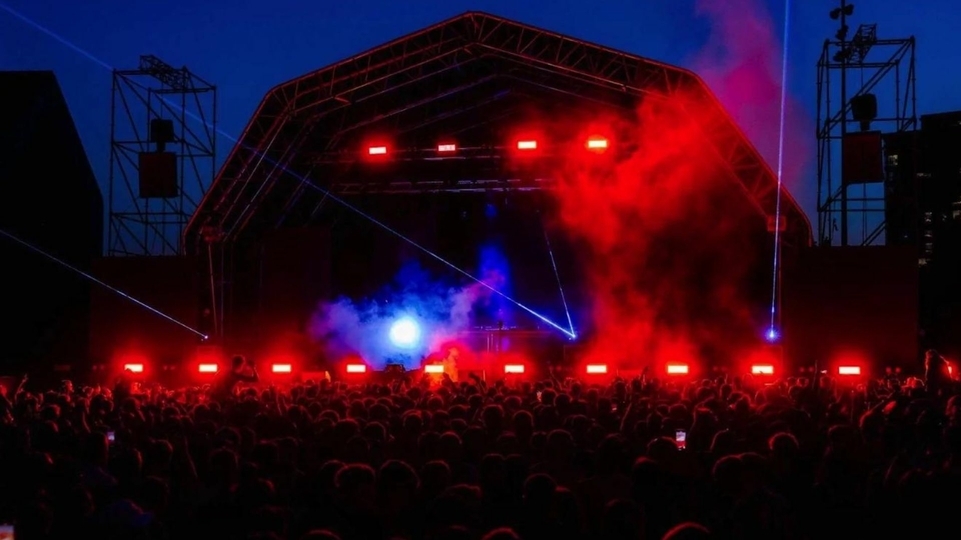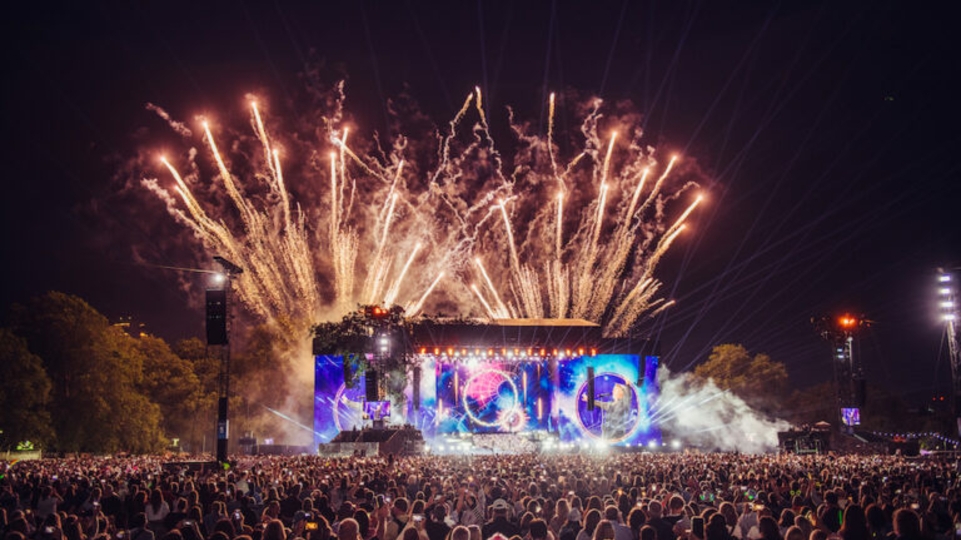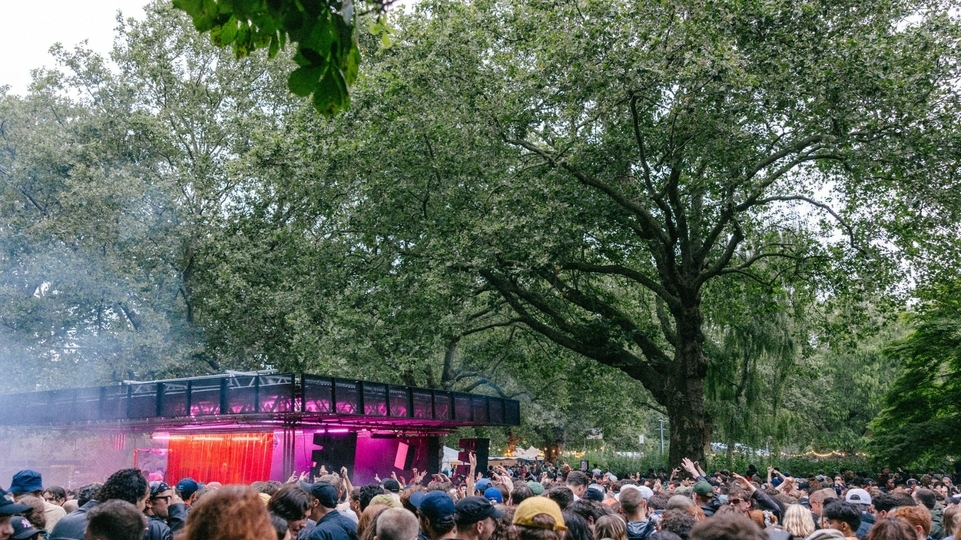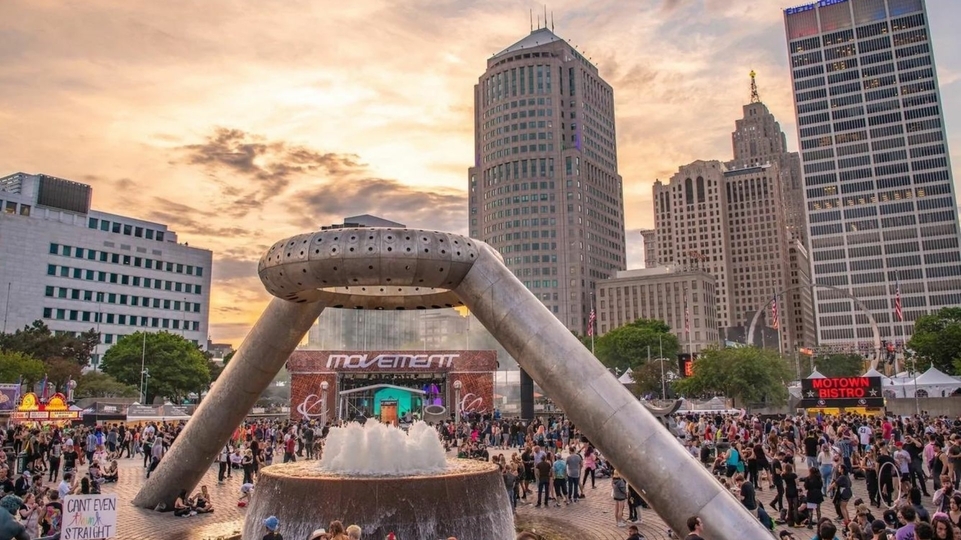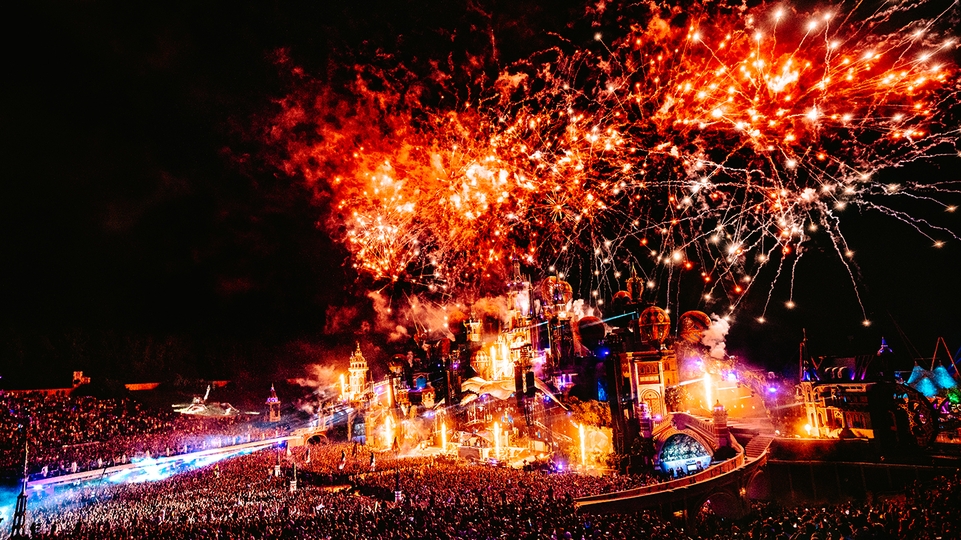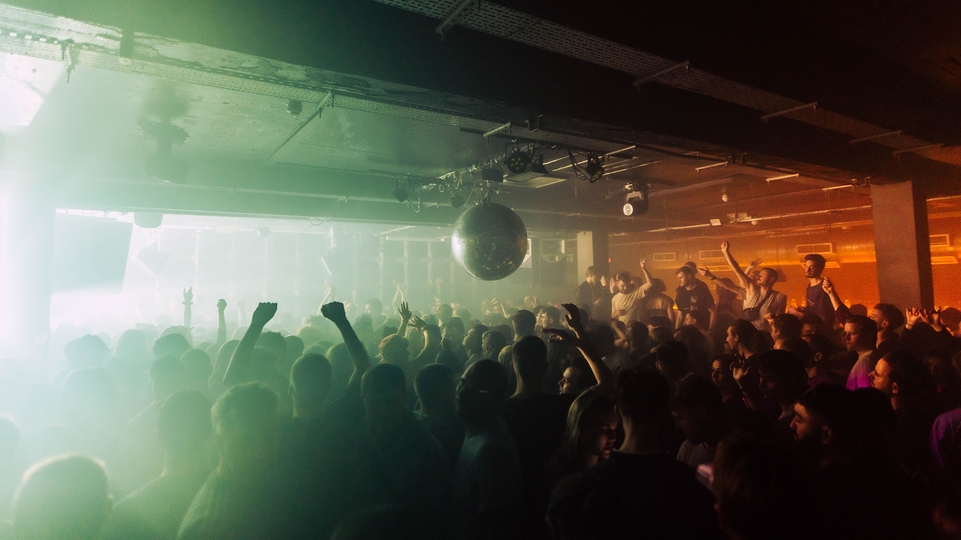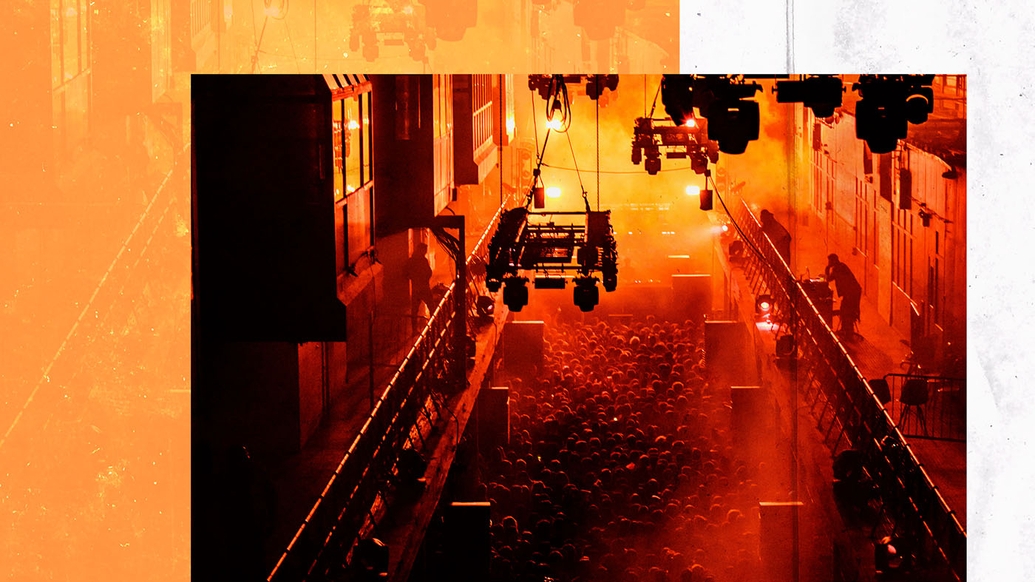
How could a return to clubs and festivals work in a post-pandemic society?
In the UK and elsewhere, there’s now a pathway towards a staggered reopening of clubs and festivals. But how have venues coped in the past year, and what is on the horizon? Ben Murphy looks at what a post-COVID landscape might look like for dance music
When UK Prime Minister Boris Johnson announced the government’s “roadmap” out of lockdown on the 22nd February — a series of dates over which COVID-19 restrictions in England would gradually be eased in the ensuing months — there was one day in particular that stood out to those in the UK club and wider entertainment industry. On 21st June, indoor venues could open and large-scale outdoor events would be allowed to go ahead.
At a time when 37% of workers in the night-time economy have already been made redundant and as many as 85% have considered leaving the industry to find work elsewhere, and festivals have lost 90% of revenue, it seemed like there might finally be a glimmer of hope on the horizon. The rapid NHS vaccination rollout and its apparent success in driving down hospitalisations and deaths caused a surge of optimism, and after the PM’s press conference, a raft of clubs and festivals announced upcoming dates and line-ups, with many events such as Field Day, Eastern Electrics and Boomtown selling out tickets in record time. All being well, these events will go ahead as planned, with an atmosphere heightened by the lack of social contact for all this time. But what could a return to clubs and festivals actually look like in a post-pandemic society?
In some countries, clubs are already operating again. New Zealand, China and Thailand have opened the doors on indoor venues, with OIL Club in Shenzhen and Illuzion in Phuket two spaces that have returned to a semblance of normality. All venues in China must perform a temperature check on attendees, but facemasks are not compulsory inside. In Ecuador, house and techno club Lost Beach shuttered in March 2020, before reopening in late October. The safety measures the club has in place now give some indication of how venues might open up elsewhere — at least in the short term.
“To enter the club, everyone is required to wear a mask and get their temperature read to make sure they do not have a fever,” says Lost Beach’s Kamran Tadayon. “We also spray [club goers’] hands upon entering. If they do not have a mask, we sell them one for a $1, and if they do not have the $1, we give it to them free. Inside the club, we have signs everywhere reminding people to wash their hands and respect social distancing. Everywhere you look, you will see antibacterial gel and alcohol spray.”
Since October, Lost Beach has also run at lower capacities to allow for greater distancing. “It was 30% capacity and now it’s at 50 per cent, so it does not get out of hand,” Tadayon adds. “To make sure we can make our investment back, we charge just a little bit more to get in, around $10 more a ticket.”
Across much of the world, there’s still a question mark over how clubs can safely welcome returning revellers. Huge London venue Printworks, which has hosted everyone from Aphex Twin and DJ Stingray to Solomun and Oliver Heldens in recent times, sold out its two re-opening shows in 10 minutes — but without guidance on security measures (so far), the club has opted to open in autumn when hopefully the worst of the pandemic will have passed.
“The appetite for live music and festivals is crazy right now,” says Bradley Thompson, Managing Director of Broadwick Live, which runs the venue. “The demand is really higher than ever. We were very keen to do something special for the opening weekend, which we recently announced. We’ve put three amazing line-ups together which won’t be announced in advance, so people can ease their way back to the dancefloor and just enjoy being in the moment with us. We are not reopening until mid-September, which is still a few months away, so as always, we will be following all the latest government guidance and advice.”
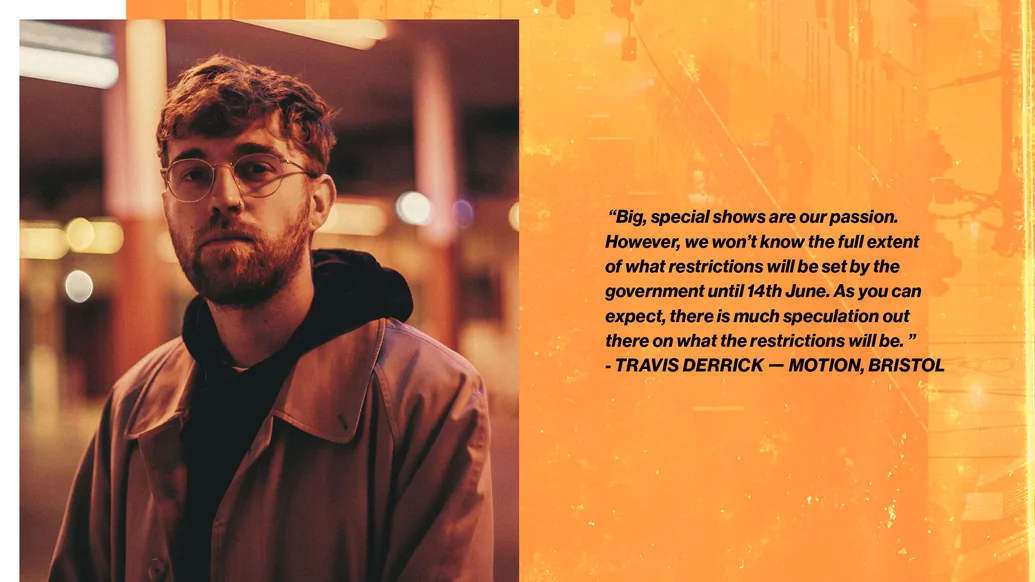
RESTRICTIONS
Bristol’s Motion — which hosts everything from drum & bass nights to house and techno events and grime shows, and featured headliners such as Goldie, Maya Jane Coles and Four Tet before it had to shut — is preparing to open this month, prior to a grand reopening when the restrictions are loosened. Like other UK clubs, at the moment it’s trying to prepare for anything.
“We have a series of seated socially distanced shows ready for 21st May, you can find details of these on our socials, but we are getting prepped for the main club to be open on 21st June,” says Motion’s Travis Derrick. “Big, special shows are our passion. However, we won’t know the full extent of what restrictions will be set by the government for us to reopen both indoor and outdoor events fully until 14th June. As you can expect, there is much speculation out there on what the restrictions will be: reduced capacity, facemasks, lateral tests, COVID status certificates, track and trace, plus anything else that can be thrown into the mix.
“As with the last 13 months, our future relies on the vaccine rollout and our ability to weather any further restrictions,” Derrick continues. “We will need to be adaptable and ready. Whatever the outcome, we will ensure a safe experience for both our staff and customers — this will be our main priority.”
One clear advantage that Motion has is its outdoor area, The Yard. “We are working on summer shows for 2021 in Motion’s iconic courtyard and beyond,” Derrick adds. “The outdoor spaces have been a central feature for summer parties in the last six or seven years anyway, with day shows becoming more and more popular in the summer months. Due to the pandemic, the majority of our upcoming events have been planned for outdoors, with the hopes of moving things back inside of the warehouse in time for the colder winter months.”


Someone well placed to anticipate how clubs and festivals might reopen in the UK is Nick Morgan, CEO of large-scale event production company We Are The Fair and vice-chair of the Association of Independent Festivals (AIF), who has also recently joined the festival Digital Culture, Media and Sport Committee (DCMS) and Public Health England Workforce, advising the government on what future safety measures could realistically look like. With 23 years of experience with licensing, health and safety matters in the events industry, he works with 100 different shows. COVID testing of attendees is one possible way of ensuring everyone is safe at a show, though Morgan points out that the logistics would make it difficult to implement at big events especially.
“It’s a myth if people believe mass testing at the gate is a viable option,” he says. “The amount of additional infrastructure needed to operate a sterile testing regime would mean, in some instances, creating huge sterile holding areas for the audience until test results are verified. I have been saying for some time that I can see society adopting testing regimes and it becoming part of our routine on a weekly basis — however, testing is getting huge push-back from the hospitality sector, as understandably they can only operate controls and social distancing to a point.”
A possible workaround would be for festivals to send tests to ticket-holders prior to the event in question, with proof of a negative test necessary for entry. “Organisers may purchase testing capability via the private sector and send to attendees,” says Morgan, “and migrate results into a verification app or ticketing platform, and attendees would present the verification to gain access on the gate.” Morgan reckons testing on the door might be possible for smaller clubs — but only with a small percentage of attendees.
“I think for nightclubs, testing will form part of the reopening plan, and in their favour is the reduced capacity to potentially allow some element of testing on the door, but I would suggest only a manageable proportion (5-10%).”
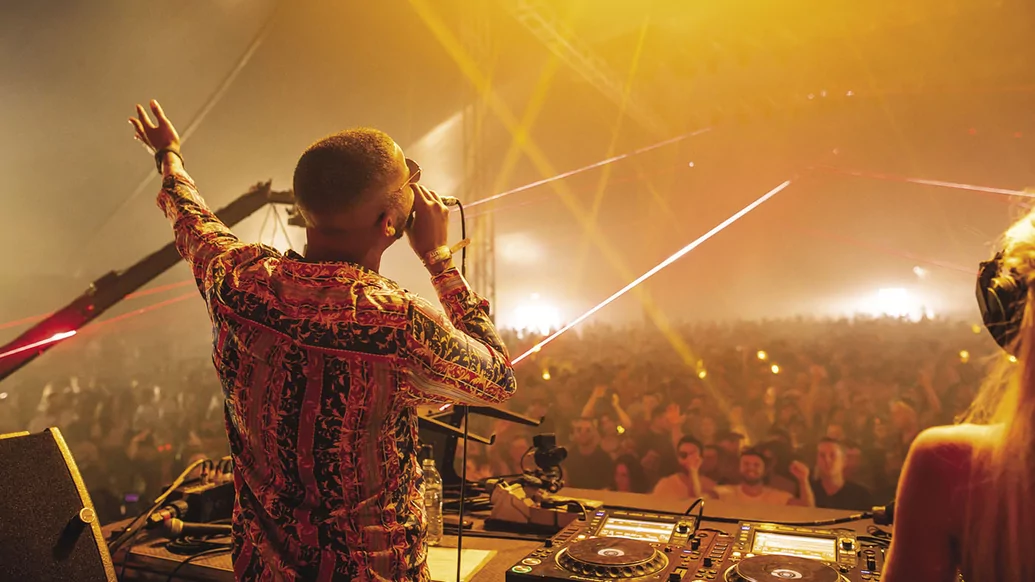

FESTIVALS
As outdoor transmission of COVID has been proven to be negligible (except when people are closely packed in together), festivals may in some ways have it easier safety-wise — although they might need to provide more outside space than usual. “The question that needs to be raised is whether festivals strip out all indoor environments, such as big tops and marquees, within their show plan,” Morgan adds. “However, this causes further issues with sound-bleed from stages, which need to be overcome and might mean increasing site footprint.”
Morgan reckons that singling out live events as a main factor of COVID transmission is rooted in conjecture rather than hard facts. “If we have a regular testing regime embedded in society in parallel with the aggressive vaccine rollout programme we are doing, operators are doing everything practicable and sensible. It’s unfair to continually blame hospitality for surges in cases when in fact the data doesn’t support these claims. We have some of the best safety practitioners in the world working within our sector, and no festival or nightclub want to endanger their audience, as we are all here for the long term and our audience means we can trade!”
The drum & bass festival Hospitality takes place 18th-19th September. This year, it moves to the leafy Beckenham Place Park on the edge of South London for Hospitality Weekend In The Woods, and features many heavy hitters of the jungle/ d&b scene, from Kings Of The Rollers and Fabio to Calibre, Dillinja, DJ Storm and Metrik. Ticket sales, says Josh Robinson from Hospital, have been very strong, though the organisers are proceeding with care just in case the festival has to be cancelled.
“We are cautiously and hopefully planning,” Robinson says. “While we can’t be certain the show will go ahead, we are forced to delay as many payments as possible to suppliers, as insurance against COVID cancellation is not on the table.” For this festival, having a reduced capacity is not an option. “We are licensed to the same capacity we had for the 2020 show that did not happen,” adds Robinson. “From a financial perspective, socially distant shows, with the line-up we have announced, with existing commercial pressures across the board, would not be possible.”
Like other festivals and clubs in the UK, Hospitality is waiting for the results of the government’s Event Research Programme. The Programme is gathering data from a series of pilot events, and will give guidance on what measures clubs or festivals need to put in place for them to open safely. “At this stage, we have no clear-cut information on any steps we may have to take, but are eagerly awaiting the results of the Event Research Programme from the DCMS,” says Robinson. “Given the speed of the current vaccination programme, yes, we are optimistic. But we are also prepared to implement any measures if we have to.”
In an open letter published online, the Events Industry Alliance (EIA) has requested the government publish this report urgently, saying: “The lack of any information on the Events Research Programme, and what areas it will examine... what criteria it might place on events and when it will report, makes any planning by the sector impossible ahead of 21st June.”
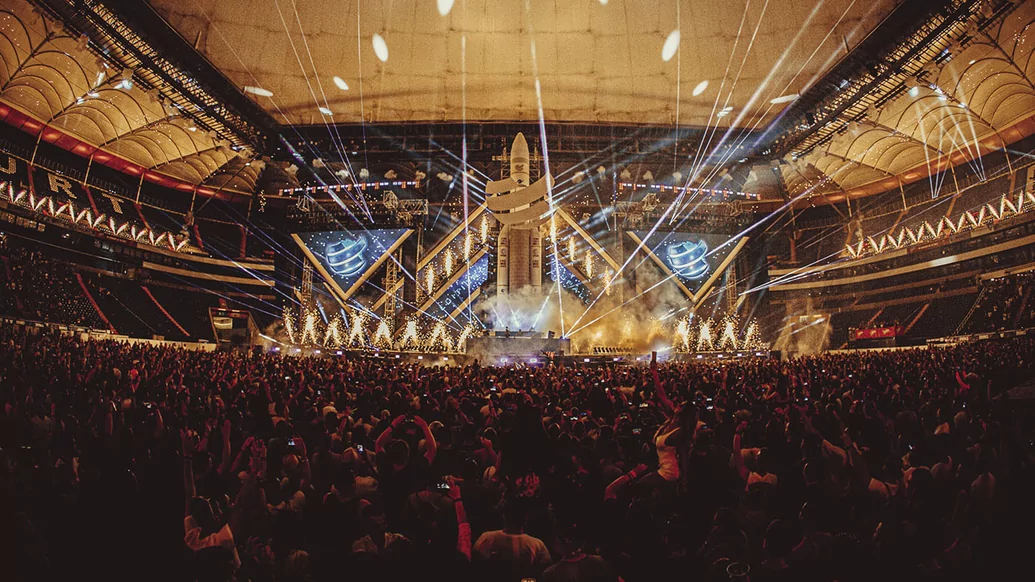
In Frankfurt, Germany, the World Club Dome festival will take place 3rd-5th September. An enormous party held in Eintracht Frankfurt’s Commerzbank Arena Football Stadium, it was forced to cancel its 2020 event, but has secured some of the world’s biggest EDM and big room dance acts for this year’s edition, including Dimitri Vegas & Like Mike, Steve Aoki and Claptone, plus rap headliner Lil Pump. With these headliners on board, a reduced capacity for the site is impossible.
“World Club Dome will never be reduced,” says the festival’s CEO, Bernd Breiter. “You cannot go to the stars on half the fuel, and so a WCD cannot work with fewer people. For us, a WCD is only a WCD when everyone is able to get in. We would cancel before we have restrictions on numbers from the authorities. The unique feeling of the WCD is that everyone can celebrate together, and that cannot be done with half the number of people, half the feeling, half the emotions.”
Like his UK counterparts, Breiter is unable to say exactly what will be necessary in regards to security protocols yet, but acknowledges that ticket holders might need to prove their immunity. “We’ve seen a lot of open-air events in Germany postponed this summer already and they are yet to reschedule,” he says. “At the moment we’re working around the clock to follow the guidelines to make sure the event can go ahead, and in the safest way possible. Unfortunately it’s still too early to say [what these will be], as the guidelines are constantly changing, so we still don’t know what will be required of us, but we will be looking into all of the different options — including, possibly, negative tests and proof of vaccinations.”
VACCINE PASSPORTS
At the time of writing, the UK government was mooting the idea of “vaccine passports”, though no one yet knows what form they might take, whether as a physical certificate or, more likely, via a phone app. The possible plan has already been resisted by MPs across the political divide: they have argued that such an idea infringes civil liberties. Meanwhile, CEO of the Night Time Industries Association (NTIA), Michael Kill, has recently criticised the vaccine passport scheme as “unworkable”.
In a statement issued by the NTIA, Kill said: “The additional barriers around mandatory vaccination certificates to gain access to businesses within the sector is unworkable, and would cause further anxiety for operators, creating more barriers to businesses, and potential conflict between staff and customers, as well as being discriminatory, given that the core of our market will not have been given the opportunity to have the vaccine by the time the roadmap engages the sector.”
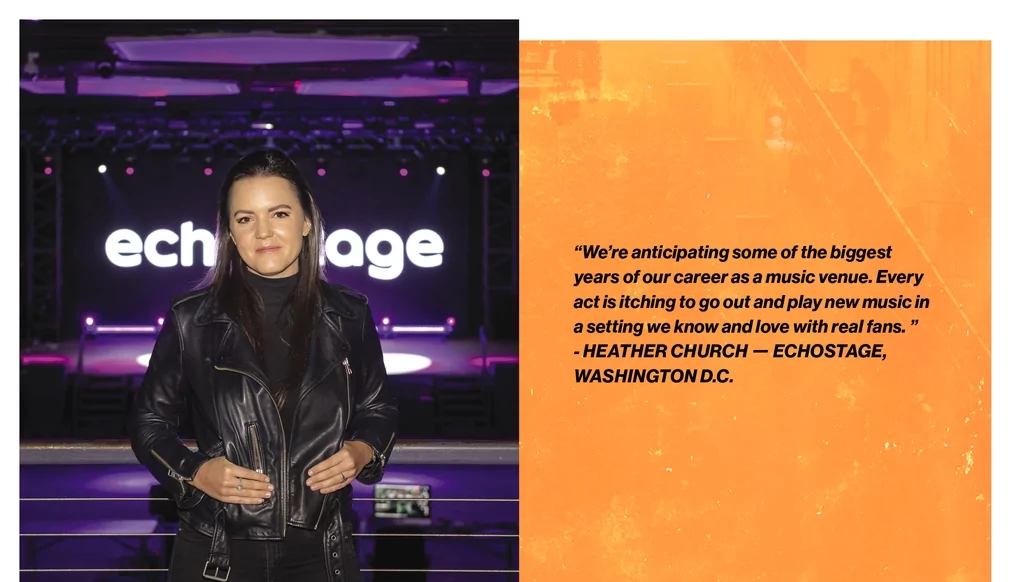

In New York, a digital vaccine passport named the Excelsior Pass already exists. It’s free and voluntary, and indicates whether the user has been vaccinated or had a negative test, generating a QR code that participating venues can scan to allow those customers to enter. In April, its efficacy will be tested, as entertainment and music venues in the state will be allowed to open to 33% their usual capacity.
“New Yorkers have proven they can follow public health guidance to beat back COVID, and the innovative Excelsior Pass is another tool in our new toolbox to fight the virus while allowing more sectors of the economy to reopen safely and keeping personal information secure,” said Governor Andrew Cuomo.
COVID restrictions vary across the USA. In Washington, D.C., venues have been closed since March 2020, but the city is starting to reopen slowly, with restaurants and shops incrementally being given the green light. For Heather Church of Echostage — one of America’s biggest clubs, which featured Armin van Buuren, Black Coffee and Rezz in its 2019 line-ups — it’s a positive sign. “We’re confident that as vaccinations increase, so will the ability to host events in safe environments,” she says. “There is definitely a bright light at the end of this long tunnel.”
Since US President Joe Biden pledged to ramp up COVID vaccinations to 200 million in 100 days (actually likely to be surpassed in number), Church is confident that the government will provide some clarification on how Echostage and other venues across the US can reopen.
“We are hopeful for some guidance this month,” she says. “We’re excited and ready to have our employees come back to their jobs and to work with the city to bring Washington, D.C. back to life. We plan to follow all of the city’s guidelines in order to ensure the safest experience possible. Safety has and always will be our No. 1 priority.”
During 2020 when most venues and festivals around the world were in limbo, some continued to cater to fans via live-streamed DJ sets or other associated events. Frankfurt’s World Club Dome went above and beyond in that regard.
“We had no option but to postpone our World Club Dome last June, but we wanted to ensure that we still offered fans a taste of the WCD experience,” Bernd Breiter says. “We kicked off the Friday of the festival with a live-stream party. For the Saturday, we hosted the world’s first ‘drive-in’ rave, with over 600 cars and 1,000 partygoers — it was an incredible moment! We then also hosted a live stream ‘WCD Pool Sessions’ from the Frankfurt Stadium pool and a main-stage takeover. For two months during the summer, we put on the ‘WCD Roof Sessions’, which culminated in the WCD Escalator Edition. This saw us host a DJ set from the longest self-supporting escalator in Europe. It was a really fun event, with a club across five floors, and a headline DJ being transported between them. We were able to host a few fans following the health and safety guidelines. We’re always looking for something that hasn’t been done before, maybe a little crazy, which I think our fans expect from us now, and we didn’t want to let COVID get in the way of that!”
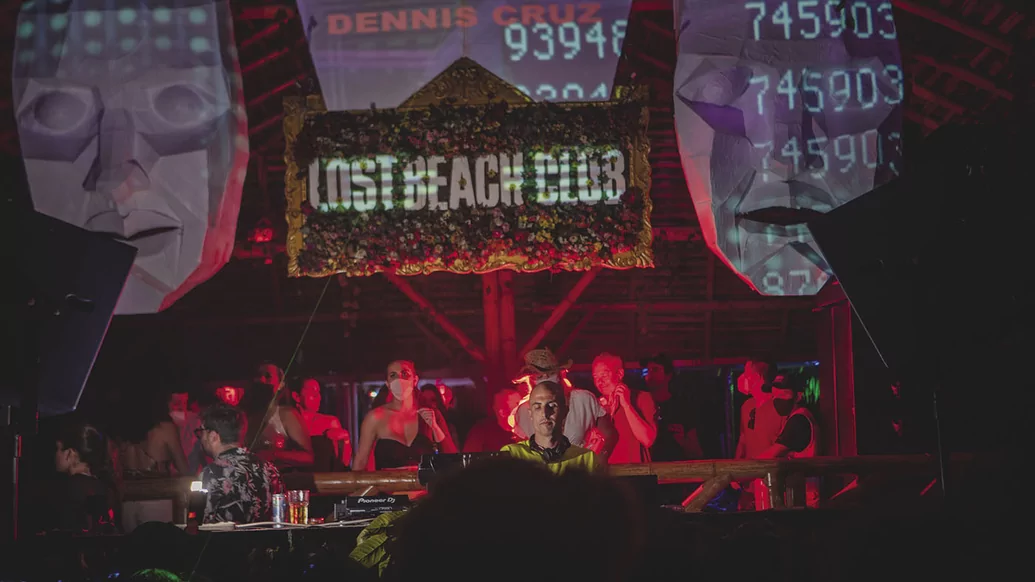

Lost Beach Ecuador linked with various club promoters from North and South America and the Caribbean as Baile Union Música (B.U.M), and put on a weekly 24-hour live stream, with a DJ from each promotion playing for an hour. “That helped build a community, and we all learned a lot from each other,” says Kamran Tadayon. “It also helped talking to others in the same situation, it was a kind of support group. It was a temporary thing.”
Printworks hosted several live-streams during its closure to the public, but the size of the venue made any more activity difficult. “Due to the scale of the building, the architecture, the production and levels of sound and lighting, it really is something that has to be experienced in person,” says Bradley Thompson, “and therefore our focus has primarily been around planning for the future when things normalise once again.”
Echostage, says Heather Church, “have done a couple of DJ live streams with Insomniac, including Loud Luxury and Deep Dish, as well as a live stream with Dubfire for DJ Mag”.
VIRTUAL FESTIVALS
One way that organisers have been able to maintain their events is with the growing trend for virtual festivals. LWE, which runs a variety of shows in the UK, including Junction 2, and the new Ion Festival in Albania, recently launched Tobacco Dock Virtual. Going beyond the realm of live-streams and creating an interactive experience modelled on the actual London venue the organisers normally use, it’s among the most sophisticated and fully featured digital festivals so far.
“Our approach from the very start has been, it needs to be more than just a live stream — it needs to be an event,” LWE say. “Being an event, it needs to have multiple stages of music, the ability to explore and interact with people and, importantly, the feeling of being part of something with lots of people at a specific point in time.”
What started out as an experiment to take the Junction 2 festival online has developed into something far more advanced. “For Junction 2, we approached this by creating our own platform, J2V, consisting of a hub to view all stages, a digital landscape that you could explore, and a rolling chat feature that allowed all the ravers to speak in real-time. The event was a huge success with over three million views, and the whole experience really opened our eyes to what is possible and the excitement around the digital space — and to find out what else could be possible to try and create a permanent digital event space.”
LWE’s aim is not for TDV to replace the real-life festival, but to work alongside it, “with the view of seeing if the digital world could complement and co-exist with events taking place physically. The concept is very much about the long-term vision of virtual events as amplification — hybrid shows where both live and digital sit alongside each other.”
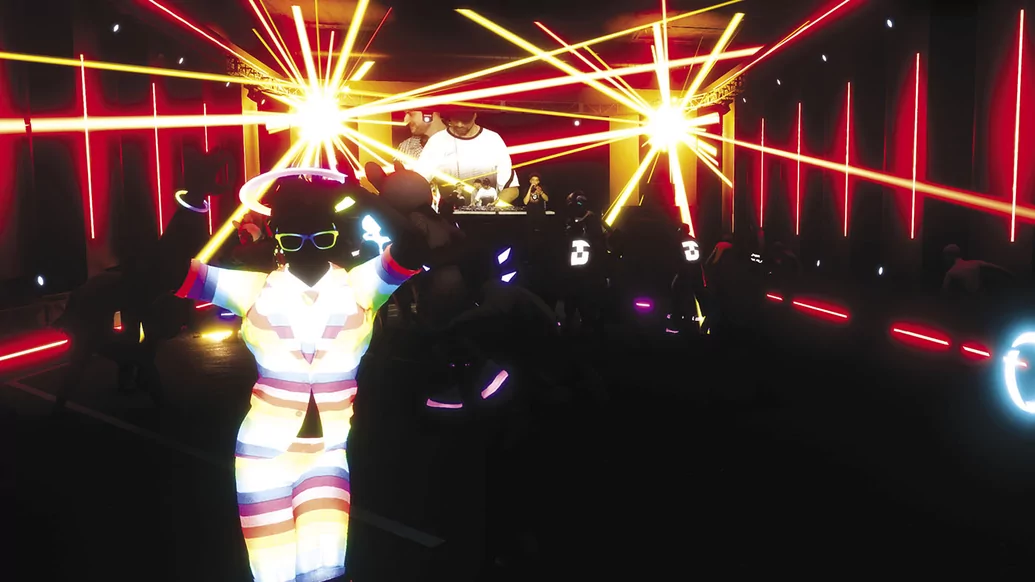
All the people that DJ Mag spoke to for this feature agreed that there’s a huge appetite for clubs and live music at the moment. After a year where most people have been locked down and cooped up indoors, ticket sales for events have been unprecedented — with many so desperate to party that they’re booking festivals or gigs many months in advance.
“Never have so many tickets been moved in the 20 years I have been in the industry than in the week following the PM’s announcement,” Nick Morgan says. “Just from the shows we work with, over one million tickets got sold in five days. People have had one of the worst years of their lives and they want or need a release and can’t wait to meet friends in a social environment. We are social creatures at heart, and interaction is key to our wellbeing.”
“The response we have had to the events we have released so far has been an extremely positive one,” says Motion’s Travis Derrick. “We are expecting a big return of crowds to the club. We understand that clubbers may have worries about going out to start with — however, we are lucky to have so much space; with COVID measures, people will feel safe and able to enjoy themselves to the fullest.”
“Some people want to go out more than ever, some people will have developed some social anxiety after being cooped up for so long,” says Josh Robinson from Hospital. “I think ultimately, in some capacity, there will always be a hunger to connect with your friends, while listening to music in the great outdoors.” To that end, many clubs and festivals are looking to turbo-charge their return, either by doing things differently or making their line-ups even better than usual.
“We’re anticipating some of the biggest years of our career as a music venue,” says Heather Church of Echostage. “Every act is itching to go out and play new music in a setting we know and love with real fans. Our calendar is chock-full of acts every single weekend that we can’t wait to release. The tours with bigger production and crews overseas may take a bit longer, but it will be well worth the wait. That first show will be magical, there’s no question about it.”
As well as keeping the line-ups of its first shows back a secret, Printworks will encourage clubbers to put their screens away and enjoy being in the moment. “We want people to focus on the live experience and human connection, and for that reason, we are asking our guests to resist using camera phones and social media,” says Bradley Thompson.
World Club Dome, meanwhile, has ramped up its offering for 2021, promising a glitzy Las Vegas theme in September. “Las Vegas is the party capital of the world,” says Bernd Breiter. “We want to bring that vibe to the World Club Dome, so you can expect to see performers, a casino, we’ll have it all! We’ve had a super-positive response from ticket sales, so we know the demand is there.”
Ultimately, Lost Beach Ecuador offers encouraging signs of the kind of recovery the industry is hoping for. “We have had some good numbers already since we opened up — crowds of over 1,000 to 1,500 people, which is great for any club,” says Kamran Tadayon. “That shows that people really want to party.”

